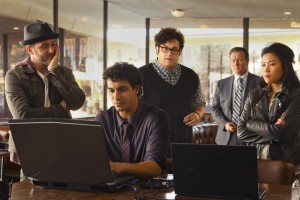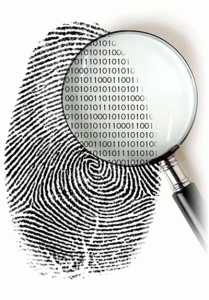Oct 23 2016
Understanding the Act: My Path Towards Digital Forensics
First, I shall start off by saying that I grew up on watching crime dramas. I’ve always been a “mind over matter” kind of guy. I like the problem solving, the logic, understanding the human nature side of things, etc. I think deep down I enjoyed most the fact that the good guy stopped the bad guy because the good guys followed a moral code, an ethical set of rules, a lawful doctrine. It was their job, they were the heroes, not because they wanted to be, but because they had this fire to protect those who could not fight for themselves. So, therefore, I watched a LOT of crime dramas. Law and Order, SVU, CSI, CSI: Miami (my father’s favorite), NCIS, Criminal Minds, Blue Bloods, Psych, House, Leverage, Scorpion (my personal favorite is inspired by a true story of Walter O’Brien’s real life team; it is a high-octane drama about an eccentric genius and his team of brilliant misfits who comprise the last line of defense against high-tech, complex threats of the modern age), and CSI: Cyber; you name it, I’ve probably watched it. It makes sense then that I would grow up wanting to be a detective right? Well, sort of.

[Fig 1. Scene from SCORPION]
I should probably introduce myself first off, the name’s Cannon, and I’ve always loved technology. I have not had much background in it though, just the slow learning that comes with understanding the things around you as you grow. Compared to many of my classmates, I haven’t had much experience. I mean seriously, compared to some of these guys experience in my CSC 1200 class, I pale in comparison with next to none. Which can be a bit intimidating sometimes. But, a lot of my classmates are cool, and they are helpful and I’m always interested in learning what I can from them. I’ve learned more in the past 2 months alone than ever before, and I’m learning so much outside of class on my own time. That combined with me trying to latch on to everything I can grasp from CyberEagles, I’m learning which is fantastic. I mean I’m running Ubuntu OS (about to install Fedora) and Debian in Virtual Machines on my desktop, three months ago I would have looked at me now and thought it had been a year or two worth of study to get here. I guess it’s true, time flies when you’re having fun. Nevertheless, I enjoyed using my hands and working with computers. So what did I do? Well, I chose a different battlefield full of threats, I chose the career of Cybersecurity. Hopefully, I use it to help shed light on the ever-growing forces of danger surrounding our 21st century digital world.
This entry however is about a certain concentration within cybersecurity, digital forensics. Digital forensics is this sort of mix between computer science as a whole, with a backbone in criminal law. It involves the gathering of evidence from computing devices and being able to use it as a presentable source in a court of law similar to how forensic evidence is used. Yes, one might agree that learning more about the digital threats themselves is important, but I believe that at the end of the day, the very criminals that create such devices and threats aim for a reason behind them. At the end of the day, for now at least, it is the human with whom writes life into the malicious program. Therefore, if an individual holding a company with ransomware can be uncovered and their intentions understood, I could in turn understand why they are committing said actions. If I can understand how their mind works, I can help uncover the truth of their intentions. Not only that, but if I know what they wish to accomplish before they do it, maybe I can even stop the bad things from happening. (That’s where the whole crime shows exposition comes in to play.)

[Fig 2. Much like the physical traits we can uncover from our individual fingerprints, our digital fingerprints can reveal as much, if not more about who we are.]
Because digital forensics offers an increased need for individuals successfully able to handle digital evidence, that need has led to a substantial increase in job outlooks. “Demand is expected to rise to 6 million globally by 2019, with a projected shortfall of 1.5 million, says Michael Brown, CEO at Symantec, the world’s largest security software vendor.” (Morgan, “One Million Cybersecurity Job Openings in 2016) Yes, Morgan here is referring to cybersecurity professions more so than digital forensics specifically, but I believe that will in turn translate to an increase for the counterpart. I hope you can now understand the reason I discovered such an admirable career choice.
By integrating computer science into a field of study revolving around the use of acquiring evidence to prove the guilt of the suspect, there are, what I believe, next to no negative aspects. Digital forensics offers more chances for those interested in working for the side of the good guys to catch those who seek to take advantage of others. Through using the information and experience computer science students are taught, it allows us for better integration into an ever changing world of high value knowledge and threats. And, by having a branch of computer science combined with an understanding of the human side of things, I can hope to have a better preparation and understanding of the threats facing this ever-changing world. Since this is my first time on a blog, if you made it this far, thanks for listening to what I had to say. I thoroughly enjoyed writing and hope to continue my journey here. I hope this has helped you as much as it helped me. As always, keep learning new things and stay safe out there in our digital jungle.
References
- Morgan, Steve. “One Million Cybersecurity Job Openings in 2016”, January 2, 2016. http://www.forbes.com/sites/stevemorgan/2016/01/02/one-million-cybersecurity-job-openings-in-2016/#4ea669577d27
- “Scorpion Image” http://cdn.hitfix.com/photos/5744304/scorpion_3.jpg Courtesy of CBS Studios.
- Warren G. Kruse II and Jay G. Heiser, “Computer Forensics: Incident Response Essential”. September 26th, 2001
2 Responses to “Understanding the Act: My Path Towards Digital Forensics”
I enjoyed your post Cannon. It is exciting to see someone on the way to making their dream a reality. I salute you for building your own digital forensics curriculum. It’s exactly that initiative and drive that will make you successful.
Hi Cannon
Enjoyed your writing. I would love to meet you sometime.
Drop by CEROC in Prescott 414 sometime. Keep up the passion and aspiration.